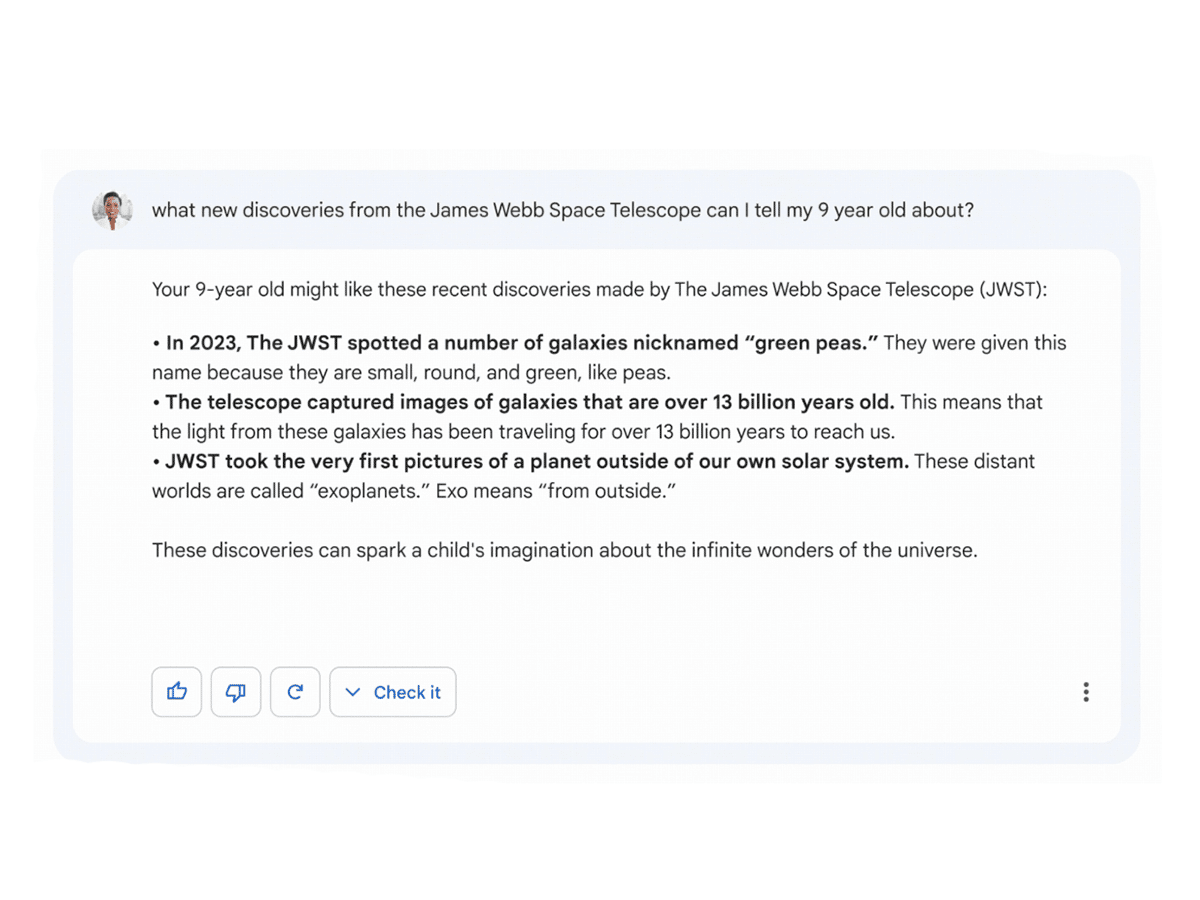
Published:
Readtime: 4 min
Every product is carefully selected by our editors and experts. If you buy from a link, we may earn a commission. Learn more. For more information on how we test products, click here.
The immense success of OpenAI’s ChatGPT has been a call to arms for all tech giants, with everyone scrambling to come up with their own AI-powered chatbot alternatives to combat the rising threat. Even Google isn’t immune to the potential threat. The company recently revealed that it would soon be rolling out its own AI-powered chatbot dubbed ‘Bard’ “in the coming weeks,” which likely is Google’s answer to whatever Microsoft and OpenAI have on the way. The news was shared by the company’s head honcho Sundar Pichai himself, who mentions that Bard has already been made available to “trusted testers” ahead of its upcoming public release. This new chatbot is powered by a miniature version of Google’s existing large language and dialogue model LaMDA, with a goal to “combine the breadth of the world’s knowledge with the power, intelligence and creativity” of the model.
You’ll also love:
Google is Launching its Own Chatbot to Rival ChatGPT
Hum a Song and Google Can Tell You What it is
In essence, Bard will treat the information present on the internet as a knowledge database to come up with suitable and reliable answers to questions asked by the user, which is exactly what ChatGPT does. But a common problem faced with these chatbots is the enormity of unreliable data flooding the internet. This hampers the chatbot’s reliability as the responses may include offensive material or false information, which can break anyone’s experience.
Related: Google Pixel Watch 2 is a Fitbit Loaded with AI Technology
To tackle this issue, the search engine goliath will utilise the external feedback coupled with Google’s own internal testing “to make sure Bard’s responses meet a high bar for quality, safety and groundedness in real-world information.” In his blog, Pichai even emphasized that he wanted the company’s AI services to be “bold and responsible” but did not delve into how it plans to make Bard a safe and reliable search haven for users.
Google is planning to initially release a “lightweight” version of LaMDA, since it “requires significantly less computing power,” which will apparently allow the company to scale to more users and gather more feedback. Interestingly, Pichai did not share any plans of integrating Bard into their search engine. He rather presented us with brand-new ways in which the underlying AI technology can be used to refine conventional search. For queries where there is no single agreed-on response, Google will try to come up with an answer that echoes all the differing views.

Pichai said, “Increasingly, people are turning to Google for deeper insights and understanding — like, “is the piano or guitar easier to learn, and how much practice does each need?” Learning about a topic like this can take a lot of effort to figure out what you really need to know, and people often want to explore a diverse range of opinions or perspectives.”
He further went on to add, “AI can be helpful in these moments, synthesizing insights for questions where there’s no one right answer. Soon, you’ll see AI-powered features in Search that distil complex information and multiple perspectives into easy-to-digest formats, so you can quickly understand the big picture and learn more from the web: whether that’s seeking out additional perspectives, like blogs from people who play both piano and guitar, or going deeper on a related topic, like steps to get started as a beginner. These new AI features will begin rolling out on Google Search soon.”
With search queries getting more and more complex and sophisticated, Google is planning to take Bard a step beyond just delivering responses to questions, instead, the company wants to help users in making rational and responsible choices by presenting them with “the big picture.” Besides this, Pichai even stated that Google intends to make “a suite of tools and APIs” available to developers, but did not say when they plan to release these.































Comments
We love hearing from you. or to leave a comment.